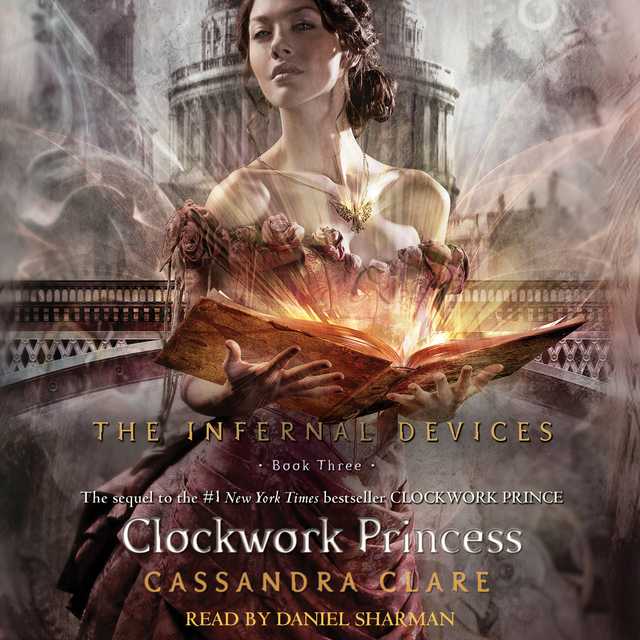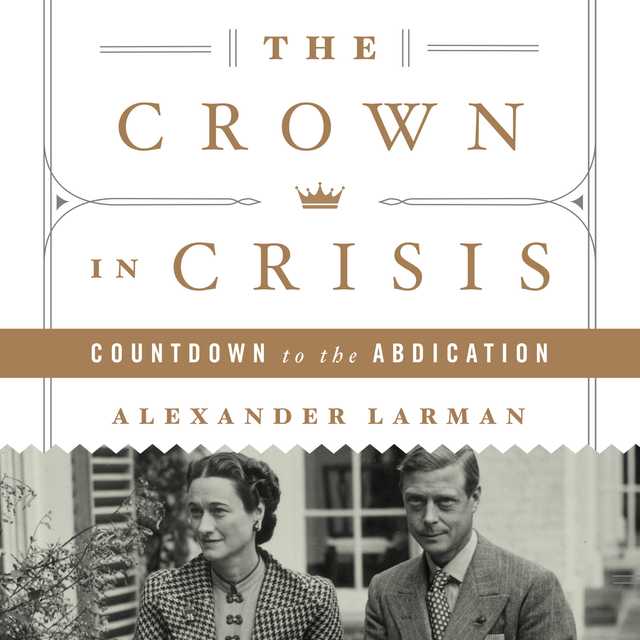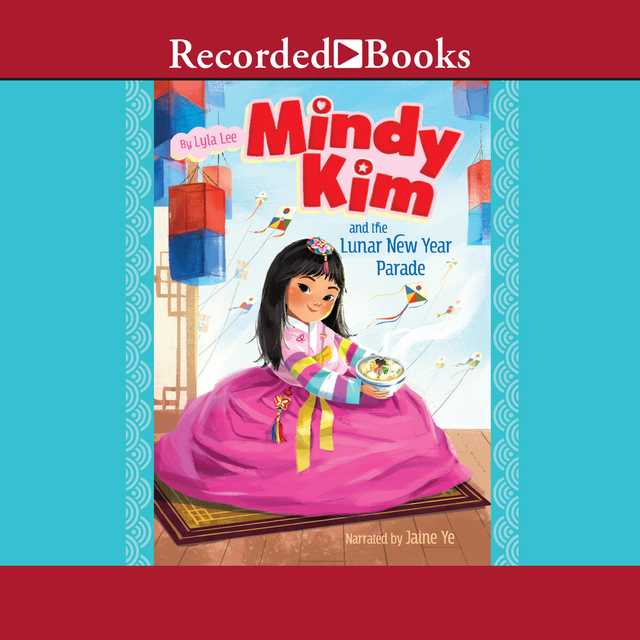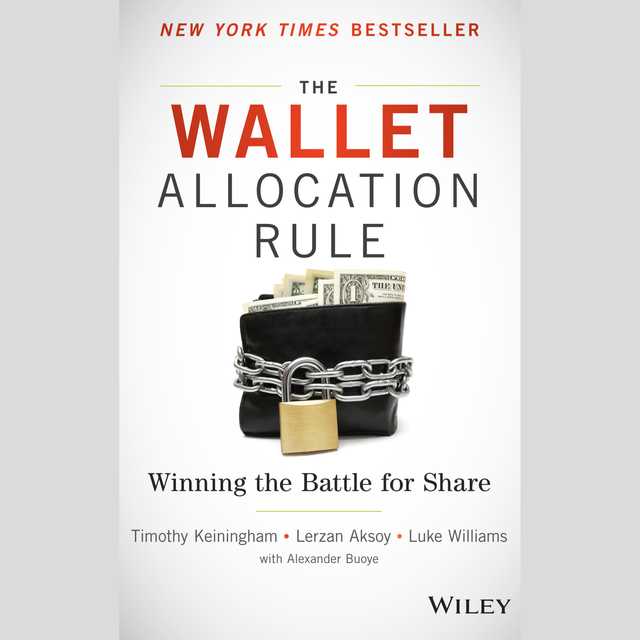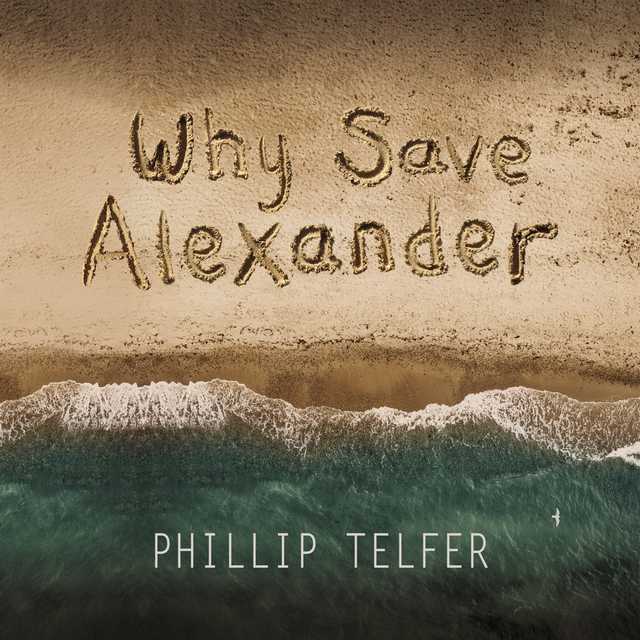Where the Past Begins Audiobook Summary
In Where the Past Begins, bestselling author of The Joy Luck Club and The Valley of Amazement Amy Tan reveals herself in a way she never has before, delving into her childhood, adolescence, family history, beginnings as a writer and professional life to explore the answers to questions of purpose and meaning that we all ask ourselves as we get older.
Moving from her childhood in Oakland and growing up with her Chinese parents through her success as a novelist, Amy Tan delves into her creative interests in music, the paralysis of beginning a new project, journal-writing and travelling. Where the Past Begins chronicles the making of a writer. With characteristic humor and poignant observation, Tan weaves a nontraditional introspective narrative that is as complex and vibrant as this beloved American novelist’s fiction. Interspersed with direct correspondence between the author and her editor, this audiobook will give fans and critics unparalleled insight into the author’s process, her thoughts on the literary enterprise, and her singularly warm, intelligent mind.
Other Top Audiobooks
Where the Past Begins Audiobook Narrator
Amy Tan is the narrator of Where the Past Begins audiobook that was written by Amy Tan
About the Author(s) of Where the Past Begins
Amy Tan is the author of Where the Past Begins
More From the Same
- Author : Amy Tan
- The Opposite of Fate
- Publisher : HarperAudio
- Abraham
- American Gods [TV Tie-In]
- Dead Ringer
- House of Sand and Fog
- Prey
Where the Past Begins Full Details
| Narrator | Amy Tan |
| Length | 14 hours 32 minutes |
| Author | Amy Tan |
| Category | |
| Publisher | HarperAudio |
| Release date | October 17, 2017 |
| ISBN | 9780062694751 |
Subjects
The publisher of the Where the Past Begins is HarperAudio. includes the following subjects: The BISAC Subject Code is Essays, Literary Collections
Additional info
The publisher of the Where the Past Begins is HarperAudio. The imprint is HarperAudio. It is supplied by HarperAudio. The ISBN-13 is 9780062694751.
Global Availability
This book is only available in the United States.
Goodreads Reviews
Tammy
August 31, 2017
This book could easily have been titled Where a Writer Begins. Of course, I prefer the actual title and subtitle much better. Tan is courageous in what she reveals about her past and her pinging, beautiful mind. She deeply delves into her past as she pursues her sense of self and what created the wonderful writer that she is. I was moved. I was in awe. And, I am grateful for her generosity.
Jean
October 27, 2017
I attended a talk by Amy Tan when she was promoting her first book. I enjoyed her talk and reading that book. I put her on my list of authors to follow. Since that time, I have read all her books and make a point of attending her talks whenever she is in my area.This book is a memoir of her life to-date. She traces her family history through photographs. Tan describes her skill of nature drawings and compares that creativity to her writing. She discusses her mother’s mental illness and its effect on her and the rest of her family. The main topic of the book is about writing and creativity. Tan discusses a collection of letters between herself and her editor, Daniel Halpern. She provides in-sights on writing. She brings out what it takes to be a professional writer. Tan is a gifted storyteller. I enjoy learning about authors and how they write.I read this as an audiobook downloaded from Audible. The book is fourteen and a half hours long. Amy Tan narrated her own book. It is great to hear the author read their book.
Ilana
July 25, 2017
I think lots of people will like this book, but if you're a writer, reading this will be like reading the best and most ethical kind of pornography, or like eating the most delicious dessert you've had in a long time. Amy Tan makes me want to write and write and write and I could feel the impulse in my body as I read this, reminding me of just how physical writing can and its joys can be.
Marisa
October 18, 2017
Stunning and a real privilege to read. Read my full review HERE .
Krista
December 19, 2017
My childhood with its topsy-turvy emotions has, in fact, been a reason to write. I can lay it squarely on the page and see what it was. I can understand it and see the patterns. My characters are witness to what I went through. In each story, we are untangling a knot in a huge matted mess. The work of undoing them one at a time is the most gratifying part of writing, but the mess will always be there. So, apparently Amy Tan was contractually obligated to provide her new editor, Daniel Halpern at Ecco, with two books – one fiction, one non – and while he was hoping for a memoir, Tan resisted: it would seem that the older she gets, the more tortuous her writing process has become (perhaps due to the brain lesions resulting from Lyme disease or the lingering effects of a massive concussion that affected her brain's language center), and the idea of a memoir – with the constant writing and rewriting and hedging and second-guessing – wasn't enticing to her. They struck a deal: Tan would send fifteen uncorrected pages on whatever she felt like writing to Halpern per week, and he would turn it into a book; this book. As a result, Where the Past Begins is very free-form, with essays on drawing and music appreciation, old journal entries and letters, an overlong email exchange between Tan and Halpern from when she was writing The Valley of Amazement, and chapters about her childhood and what she has been able to unearth about her family back in China. As a result, this is an inconsistent reading experience – some parts were fascinating, others less so – but as someone who has adored Tan's fiction throughout the years, I appreciated learning the inspiration behind some of her most gut-punching scenes. For the most part this worked for me, but individual experience may vary. Tonight I go to a spot in my mind where the foot of the mountain and a river connect, sneggin, a meeting place. I wait until I feel the sound pulsing in my veins. And it comes – Pes-pas! Pes-pas! – the sound of horses galloping softly over grass. The second vowel tightens. Pes-pis! Pes-pis! The hooves are hitting the hard-baked earth of the steppes. Soon we will arrive at that place where the past begins.I didn't realise that Tan received a Masters in Linguistics before she started her writing career, and her lasting fascination with languages seems a key to understanding her point-of-view and the family dynamics that feature so heavily in her fiction. Tan didn't find out until after her mother died that what she thought was her mother's fluid Mandarin was actually heavily accented, and that her native Shanghaiese was spoken with a posh and educated dialect: not only was Daisy handicapped in America with her “rusty” pidgin English, but even when speaking “Chinese”, most people missed the subtleties of what she was saying – this must have affected how she was treated; must have contributed (along with what Tan assumes to be some degree of mental illness) to Daisy's stated loneliness and suicidal (not to mention homicidal) threats. If it wasn't true, it would seem an authorial overreach to have the Linguist lose elements of her own speech due to both illness and injury, and then watch her aging trilingual mother lose each of her own languages to dementia until she's reduced to speaking in the baby-talk of her mother tongue. The story of my grandmother is like a torn map glued together with so many bits and pieces that there is now more glue than map. The pieces haven't led to verifiable truth. I have imagined what the truth might have been, based on my own emotional and moral character. Others have done the same. We see what we want to believe. We are all unreliable narrators when it comes to speaking for the dead. In particular, Tan is fascinated by dead languages and makes the point that once a language loses its native speakers – once no one is making puns or exchanging gossip in that tongue – it becomes impossible to actually know what those people's lives were like; cuneiform accounting tablets tell us nothing intimate of Sumerian domestic life. In the same way, Tan makes the point that we can never really know anyone by the words they leave behind – she can read old letters and study yellowing photos, but she will never know the grandmother who overdosed on opium when Daisy was only nine. And this leads to another interesting point: I have never read an analysis of my work or me that reads as accurate. It's because they start off on the wrong path, have created the map and thereby see only those points and conclusions. There is no symbolic immortality to be had in giving one's archives to a library. It's perpetual misinterpretation. Who I was will have been missing since before I stepped off Earth's floor. Apparently Tan intends to have all of her personal papers destroyed upon her death – all of the letters, journals, and partial novels that, as an admitted packrat, she now possesses – and this seems to be in line with what she's saying here: words on the page are dead things, not a conversation with their author, and open to misinterpretation; she wants to be remembered for what she has produced, not for what others assume those products mean. And that's very interesting coming from a Linguist-novelist; someone who uses language to discuss language; someone who uses language to untangle the knotted mess that is her inner self.Where the Past Begins does have all the elements of a traditional memoir – we learn about Tan's childhood and her complicated relationship with her mother; the tragedies that befell the family when Tan was a teenager; the family stories behind some of her fictional scenes – but this “fugue state” free form style also includes material that didn't interest me very much. Still happy to have read it and am rounding up to four stars.
Kressel
January 14, 2019
I've read two of Amy Tan's novels, so I went into this book knowing why she's one of the most acclaimed writers alive today, but what really got me excited about embarking on it was the subject matter. It wasn't just for the insight to be gained from a master like her talking about her writing process; it was because the flap copy specifically said it was about delving into memory and how that shapes writing. That there's a connection between memory and writing may seem like an obvious point, but now that I'm getting back into my own writing, I see how deep that runs, and I couldn't wait to see what Amy Tan would have to say about it.My own deeper understanding of this connection happened last summer when I was enrolled in a memoir writing course at the Writer's Studio in Manhattan and simultaneously reading Old Friend from Far Away: The Practice of Writing Memoir by Natalie Goldberg. As you can tell by her name, Natalie Goldberg is Jewish like me, but she's also a practicing Buddhist, and her approach to writing is meditative. Some might call it "freewriting," but she calls it "writing practice," and she means it as a spiritual practice, much in the way we Jews use the word "avodah." Anyone who's serious about writing will tell you it's a spiritual process, or, if that writer is an atheist or agnostic, a therapeutic one. That's why so many people love doing it.Last summer, I did every single writing prompt in Natalie's book, which is something I didn't do with her other books. I didn't finish it, but I probably got more out of it than anything else I read that year. Between her writing prompts, which were designed to stimulate memories, and the reassurance of my writing teacher that detailed descriptions are not boring but give your writing color, verisimilitude, and readability, I began remembering things I hadn't thought of in years. It's incredible how many sensory experiences our minds store over a lifetime, and with a little effort, you can bring it all out of yourself. Once you've gotten in touch with the memories, there are endless ways you can interpret the details and shape them into a narrative. You can view any of your life's event positively or negatively. You can emphasize some details more than others, and you can ignore some things so much that they fade until they're forgotten. Memory is a flowing current that can run in any direction we choose, so the interpretation and meaning of our lives is in our own hands. That seemed like a Zen realization to me, so it's fitting that Natalie Goldberg helped me reach it.Months after this insight, I discovered Amy Tan's book. She is famous for her portrayal of Chinese women and their Americanized daughters, but what I like best about her writing is how she weaves spirituality and myth into her fiction. Please see my review on The Joy Luck Club for specific examples. So I really wanted to know if Amy Tan, a descendant of the culture that brought the world Zen philosophy, would confirm what I experienced about the process of memory and writing.I am pleased to say that she did, though that's not the only thing she discusses in the book. She also talks about music, linguistics, and most of all, her family. I never realized just how much of her novels were taken from her mother's life. But not only did Amy's mother give her permission to write her story in her novels, she thought Amy had done such a realistic portrayal, she wondered if the ghost of her own mother - Amy's grandmother, that is - had helped along. Talk about tapping into family and mythic memory! Amy does not reject the idea outright. Here is what she says about it: "If there is indeed a universal consciousness, it makes sense that mine would conjoin with it when the doors of imagination are flung wide open and all possibilities are allowed. . . I have periodically felt I have with me a spiritual companion who drops hints and guides me toward revelations, ones I never would have stumbled upon. . . Whatever it is, I don't need to analyze it any further. I simply welcome this benevolent companion when I write, be it my grandmother, the universal consciousness, or a deeper layer of my subconscious unleashed by my imagination."My gosh, is that not the most awesome insight into the creative imagination ever?Even if you're not interested in reading about Amy Tan's writing process, I recommend this book. Amy Tan's life story is that good. But read some of her other work first, especially The Kitchen God's Wife. That was the closest to her mother's life story, and it's astounding in and of itself. And if you are interested in the writing process, you'll learn plenty from this book. Even with the quote above, I haven't spoiled it for you.
Eilonwy
January 25, 2018
I'm never good at reviewing nonfiction! This is not a book I would have chosen to read myself, despite having read and enjoyed Amy Tan's first two novels. But a friend of mine gave it to me, so I felt obligated to read it in a timely fashion. And I'm very glad I did. This is apparently a collection of essays that Amy Tan was "assigned" to do by her editor. So while they are loosely joined in a linear fashion as a memoir, they also range over a wide number of subjects. Because they are each sort-of discrete, there is a fair amount of repetitiveness in getting re-introduced to some of Amy's family, and this lack of consistent flow is one reason I knocked a star off my rating. But her family has a fascinating and tragic story, which Amy narrates beautifully, and I was riveted through most of the essays. In addition, Amy herself is a very interesting person, and I really enjoyed hanging out with her in the pages of this book. I was least interested by a section where she and her editor exchange emails about a WIP. This stuff is utterly engrossing when it's YOUR WIP being discussed, but not so much when it's somebody else's. (And I'm sure it didn't help that I haven't read whichever of her books it was.) Luckily, the book got its mojo back for me after that section with a discussion about Amy's love of languages, and a very touching reminiscence about her mother's last months struggling with Alzheimer's Disease, which is also about language. I am very grateful to my friend for choosing this book for me. :-)
Una
September 05, 2018
It was comfortable to read the usual Amy Tan work. Everything revolved around her mother. What I didn't like was the collection of emails. I hope there will be another book or more.
Polly
August 25, 2019
I enjoyed this book. I could connect to many aspects of it, and found it all very interesting. Amy Tan's mother is Shanghainese so I found the information she shared that pertained to Shanghai to be intriguing. Her mother endured a number of dramatic events in her early life, many of which are chronicled in The Joy Luck Club and other novels Amy has written. Not only that, but after her mother came to the U.S. and had Amy, their family had more than its fair share of tragedy. Amy talks about how writing has helped her to understand and make sense of her past. She had a lot of reflections on learning languages as well, since she studied linguistics and almost earned a PhD in this field. For me, reading a memoir of one of my favourite authors was a pleasure.
Carol
November 01, 2017
I read this book primarily to learn more about novelist Amy Tan, and I did. That was interesting, but the book was not as satisfying as her excellent novels.The most amazing thing I learned was that her parents were in the US illegally for many years because their student visas had run out. Tan herself just discovered that in recent years. She now sees that was a cloud hanging over her family that was one reason it was so tense.She tells how her mother often threatened, and sometimes attempted, suicide. That becomes understandable when you realize that she (Amy's mother) had a nightmare life in China. Her mother, Amy's grandmother, committed suicide because she was treated badly as a fourth wife, and Amy's mother in turn was married to an extremely abusive man. Finally she escaped to be with the love of her life, Amy's father, but the price was living in greatly reduced material circumstances. Regardless of the reason's for Amy's mother's disturbance, her children suffered for it.Amy's parents favored her older brother, which pained Amy all her life.Amy Tan also tells about how she developed her love of writing. She added some bits, such as correspondence with her editor, that didn't add to the book.But of course her writing is always interesting. I'm glad I read the book, and I'm sure most Amy Tan fans will want to read it.
Suzanne
October 21, 2017
Amy Tan has given us a gift with this book. It is part journal, part diary, part family history with a bit of story-telling tossed in to explain the parts that remain inexplicable all these years later. What parts might those be? Family stories told and re-told that all these years later finally demand attention and in the renewed attention become something other than what they once appeared. Her own mysteries and personal dramas, ferreted out and re-evaluated become different in examination many years later than what they were when first experienced, or even later, when used as a source for writing. And Tan provides such great material about the sources for her writing and her experiences in daily living. The book is a delight and a treasure for Tan fans and would-be writers and readers who delight in learning about ways in which artists experience the world. I received my copy from the publisher through edelweiss and I am deeply appreciative.
Donna
November 16, 2017
This is a lyrical and poetic look into Amy Tan's life and how it shaped her as a writer. Much of this book is a quest to understand her past in order to understand herself and her place in the world. I was lucky to see her speak in conversation at the Philadelphia Free Library and meet her and get a signed copy. She spoke as lyrically as she writes - I could have listened to her for another hour. The only part of this book that was disjointed for me and not as enjoyable, were the letters back and forth between her and her editor. It broke the flow of her voice and story. But overall a thoughtful read and peek into one author's life.
Sam
October 24, 2019
I came to Amy Tan’s novels very late in her career despite having been aware of her almost from the moment that The Joy Luck Club hit the bookstores back in 1989. Even saying that “I came” to her novels is a bit misleading as, to this day, that’s the only one of her novels I’ve read – and I didn’t finally read that one until 2015. But still, Amy Tan fascinates me enough that I recently purchased a copy of her 2017 “writer’s memoir” Where the Past Begins in hardcopy and borrowed the audiobook version from the library in order to hear Tan read her own work. Let’s just say that I was not disappointed and that Tan continues to fascinate me.Where the Past Begins: A Writer’s Memoir intimately explores the author’s family history, especially that of her mother. Those familiar with Tan’s novels will already be familiar with the basics of her family tree and how the family ended up in America; even those like me who have read only The Joy Luck Club will immediately recognize several of Tan’s relatives and episodes from their lives. But what they will be reading for the first time is how it really was for Tan to grow up with a mother who often used the threat of suicide to get her husband and children to do what she wanted them to do. Perhaps the most surprising thing about Where the Past Begins, however, is that Tan even decided to share the cathartic process of writing it with her readers, in the first place. It all started for Tan when she decided to explore the contents of the seven plastic bins she kept in her office, bins containing photographs, letters, and miscellaneous memorabilia marking some of the “frozen moments in time” relating to her own past and to her family history (moments from before her own birth). During the process, she learned just how unreliable many of her childhood memories were, and she was forced to reconfigure and reassess the ones she had of her parents. Tan learned who her parents really were. The author pulls no punches here. This is as honest a memoir as one could wish for, one in which its author reveals much about her mentally unstable mother (including one incident in which her mother came at her with a knife) and how the relationship shaped her into the writer she would became. Tan also shares frank details about her father and her two brothers and her relationship with each of them. Not awfully surprising, I suppose, she learns that her surviving brother’s memories of their childhood do not always mesh in detail or in content with those of her own. Amy Tan is figuring out here who she is and how she became that person – and she takes her readers along for the ride.Equally intriguing and honest are the book’s segments on the writing process and how Tan works her way through it to produce her fiction. Tan is not one of those overconfident writers who can speed through the writing process with the full confidence that she will almost certainly produce something worth publishing. For her, almost the opposite seems to be the case, and it is an educational joy to read through the long email exchange she shares here between her and her trusted editor. Bottom Line: Where the Past Begins will interest both Amy Tan admirers and general fans of the memoir genre who know relatively little about the author herself. The audiobook version of the memoir is read by the Tan (at a slow pace that can at times become a bit annoying), something else that will appeal to her already-fans. The drawback to reading this one via audiobook, however, is not being able to study the numerous family photos and documents that are available in the printed version (additions I only learned of because I have a hardcopy of the book). But whichever way you decide to experience Where the Past Begins, it is an interesting look into the life of one of this America’s most respected authors.
Most Popular Audiobooks
Frequently asked questions
Listening to audiobooks not only easy, it is also very convenient. You can listen to audiobooks on almost every device. From your laptop to your smart phone or even a smart speaker like Apple HomePod or even Alexa. Here’s how you can get started listening to audiobooks.
- 1. Download your favorite audiobook app such as Speechify.
- 2. Sign up for an account.
- 3. Browse the library for the best audiobooks and select the first one for free
- 4. Download the audiobook file to your device
- 5. Open the Speechify audiobook app and select the audiobook you want to listen to.
- 6. Adjust the playback speed and other settings to your preference.
- 7. Press play and enjoy!
While you can listen to the bestsellers on almost any device, and preferences may vary, generally smart phones are offer the most convenience factor. You could be working out, grocery shopping, or even watching your dog in the dog park on a Saturday morning.
However, most audiobook apps work across multiple devices so you can pick up that riveting new Stephen King book you started at the dog park, back on your laptop when you get back home.
Speechify is one of the best apps for audiobooks. The pricing structure is the most competitive in the market and the app is easy to use. It features the best sellers and award winning authors. Listen to your favorite books or discover new ones and listen to real voice actors read to you. Getting started is easy, the first book is free.
Research showcasing the brain health benefits of reading on a regular basis is wide-ranging and undeniable. However, research comparing the benefits of reading vs listening is much more sparse. According to professor of psychology and author Dr. Kristen Willeumier, though, there is good reason to believe that the reading experience provided by audiobooks offers many of the same brain benefits as reading a physical book.
Audiobooks are recordings of books that are read aloud by a professional voice actor. The recordings are typically available for purchase and download in digital formats such as MP3, WMA, or AAC. They can also be streamed from online services like Speechify, Audible, AppleBooks, or Spotify.
You simply download the app onto your smart phone, create your account, and in Speechify, you can choose your first book, from our vast library of best-sellers and classics, to read for free.
Audiobooks, like real books can add up over time. Here’s where you can listen to audiobooks for free. Speechify let’s you read your first best seller for free. Apart from that, we have a vast selection of free audiobooks that you can enjoy. Get the same rich experience no matter if the book was free or not.
It depends. Yes, there are free audiobooks and paid audiobooks. Speechify offers a blend of both!
It varies. The easiest way depends on a few things. The app and service you use, which device, and platform. Speechify is the easiest way to listen to audiobooks. Downloading the app is quick. It is not a large app and does not eat up space on your iPhone or Android device.
Listening to audiobooks on your smart phone, with Speechify, is the easiest way to listen to audiobooks.











